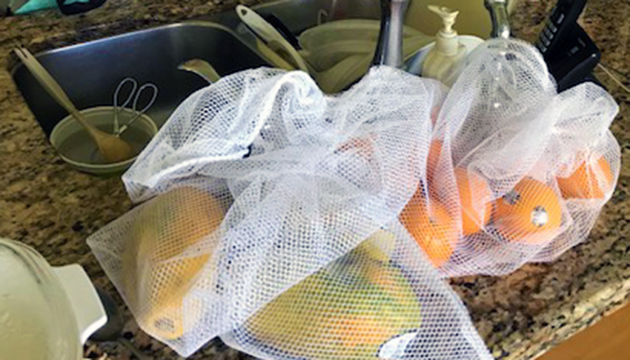Individuals can start saving the planet from overheating in their garages, kitchens, and dining-room tables. The more stuff you own, and the more you travel, the more fossils fuels are burned, and the more greenhouse gases are emitted into the planet. Modern activities— such as plugging in devices, driving cars, and cooling homes—often rely on energy sources such as natural gas, oil, and coal. Those energy sources release CO2into the atmosphere.
When CO2 and other greenhouse gases trap heat that would otherwise escape the Earth’s atmosphere, the planet’s temperature rises. Global warming causes climate change. It is happening and can be seen in rising sea waters, stronger storms, and shifting habitats for wildlife and people.
Clean Power Plan Initiatives introduced by U.S.President Obama in 2015 include suggestions for individuals to save the planet from climate change; so does the Internet such as the following:
- Consume less because the more products we use, the more raw materials and energy are needed to produce them and often result in excessive waste when they are disposed of. Burgeoning landfills and mountains of garbage in dumpsites attest to this.
- Talk to your friends and family to support the goal of limiting future warming to well below 2 degrees Celsius by reducing the use of environmentally damaging everyday products at home such as cosmetics and toiletries with microbeads, coffee capsules, wet wipes, disposable chopsticks, plastic tea bags, single use plastics, aerosol cans, detergents containing phosphates and chlorine bleaches, just to name afew. Google“environmentally damaging products” for a list of such products to avoid.
Microbeads are manufactured solid plastic particles of less than one millimeter in size made of polyethylene but can be of other petrochemical plastics such as polypropylene and polystyrene. They are. used in some rinse-off products like shower gels, face scrubs, exfoliating body scrubs, soap or toothpaste. Their use has been banned in some countries because when they are washed down the drain, they enter the seas and are swallowed by marine life with potentially harmful effects. Check the ingredient of rinse-off toiletries before buying.
- Speak up and encourage your elected representatives to enact new laws that limit carbon emissions and require polluters to pay for the emissions they produce. Lawmakers can change consumer behaviour with higher taxes on travel, fossil fuel, red meat, luxury items and environmentally damaging products while heavily subsidizing environmentally sound alternatives such as subsidized and reliable public transport, car share programs to allow occasional use of cars, bike hire, and subsidies on fresh vegetables and meat alternatives to encourage people to use them.
- Power your home with renewable energy – Choose a utility company that generates at least half its power from wind or solar. Check your electric bill for ways to support renewable sources.
- Weatherize– heating and cooling homes and offices are among the biggest uses of energy. Make home more energy efficient by sealing drafts and ensuring it’s adequately insulated. Install screens to cool homes in summer with open windows while keeping bugs out.
- Invest in energy-efficient appliances – When shopping for refrigerators, washing machines, and other appliances, look for the energy label. It will tell you which are the most efficient.
- Reduce water waste– it takes a lot of energy to pump, heat, and treat your water. So take shorter showers, turn off the tap while brushing your teeth, and switch to water-efficient labeled fixtures and appliances.
- Actually eat the food you buy—and make less of it meat and more of vegetables because energy is used in the growing, processing, packaging, and shipping of food. Plant vegetables for home use because the less produce you buy the more energy you save. When ordering take-out food from restaurants, bring your own containers.
- Buy better bulbs – LED lightbulbs use up to 80 percent less energy than conventional incandescents. They’re also cheaper in the long run: A 10-watt LED that replaces your traditional 60-watt bulb will save you $125 over the lightbulb’s life.
- Pull the plug(s) – Audio and video devices, cordless vacuums and power tools, and other electronics use energy even when they're not charging. So don't leave fully charged devices plugged into your home's outlets, unplug rarely used devices or plug them into power strips and timers, and adjust your computers and monitors to automatically power down to the lowest power mode when not in use.
- Drive a fuel-efficient vehicle – Gas-smart cars, such as hybrids and fully electric vehicles, save fuel and money.If all drivers kept their tires properly inflated, 1.2 billion gallons of gas can be saved each year. A simple tune-up can boost miles per gallon anywhere from 4 percent to 40 percent, and a new air filter can get you a 10 percent boost. Look for rebate incentives when purchasing vehicles that do not burn fossil fuels.
- Rethink planes, trains, and automobiles. Choosing to live in walkable smart-growth cities and towns with quality public transportation leads to less driving, less money spent on fuel and less pollution in the air. Less frequent flying can make a big difference, too. Air transport is a major source of climate pollution; take a train instead, if you can. Consider teleconferencing if possible.
If your Ecological Footprint is more than 2 hectares, you may wish to start lowering your demands on planet earth by simply eliminating single use plastics in your daily shopping and use lightweight reusable mesh bags instead. See No. 2 above. It may not look much but every little bit helps in reducing the devastating effects of climate change on the planet.



